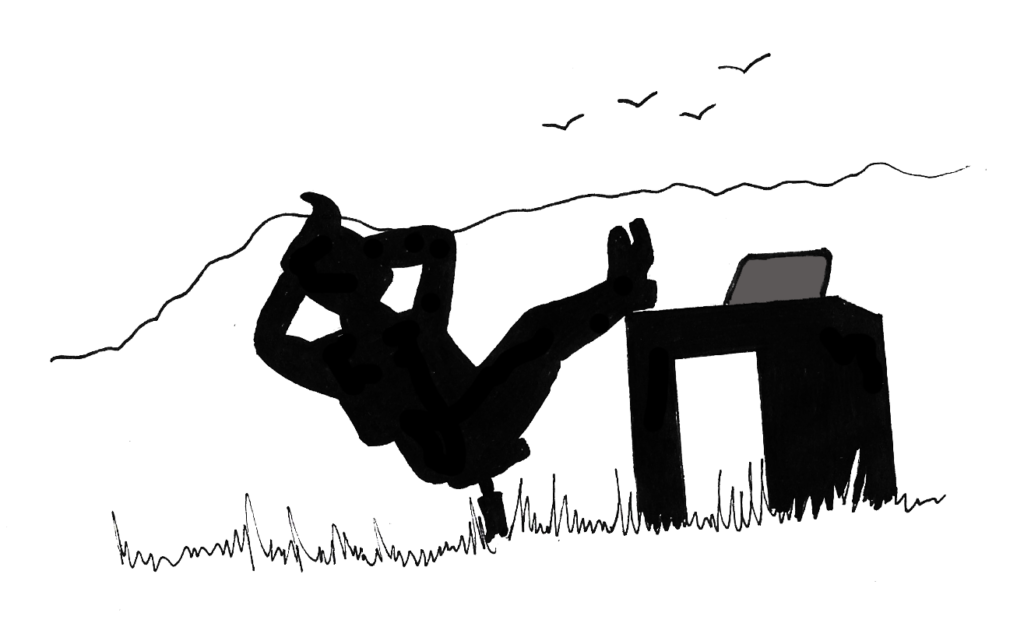One word that has become fashionable in modern times is ‘disruption’.
The business world is talking about the disruption of old business models by new ways of doing things – and the difficulty of existing organisations in adapting, to make the transition from old to new ways.
An often-used example is Kodak. This once-thriving market-leader – which actually invented digital photography – was unable to change sufficiently, to capitalise on it. Kodak’s market was disrupted by the global transition from traditional to digital photography.
What’s so difficult about adapting to change? One dynamic is that the organisational ‘immune system’ resists change, acting like white blood cells in the body that attack anything new and different, and preserving the status quo. For this reason, the common narrative suggests there’s little hope of large organisations ever being able to make the transition.
In my work in transforming community and government, I no longer use the word ‘disruption’, because the concept of disruption suggests that one organisation replaces another. Whilst this is conceivable and achievable in competitive markets, I started to realise that this doesn’t really apply to the community and government. Whilst politicians may come and go, the services of government remain, so it’s difficult to look at these institutions through a competitive lens. Likewise, you cannot conceivably disrupt one community and replace it with another. To me, disruption in the government and community arenas suggests revolution, war and collapse – not viable options if we want our children to remain alive in the decades ahead.
So, we face a monumental challenge: to develop a model of transformation that is kinder and which doesn’t involve ‘replacement’. One that involves individuals, groups and organisations choosing to change, themselves, in spite of an ‘immune system’ that’s hard-wired to prevent it.
Much of my innovation and experimentation work develops individual, group, organisation and society-level methods of debugging that immune system, to allow for greater adaptability.
We live in an era in which adaptability matters. Accelerating technology will place most jobs and companies under threat within the next decade. Populism is exploding, and with the information age increasing our expectations, institutions are finding it harder to meet them. We need to find a way to speed up transformation, without the resistance that comes from attempting it.
At all levels, the solutions lie in wellbeing and resilience-supported transformation. The more we invest in our wellbeing, the more adaptable we become.
Any change means taking a step into the unknown – which leaves many people feeling insecure, wary – and even anxious and fearful. People are most adaptable when they feel safe and well; yet most approaches to transformation have the capacity to make people feel very unsafe and unwell. So, the methods used are counterproductive to the desired outcomes. Is it any wonder that most individual transformations fail? Is it any wonder that most transformation and change programmes fail? Is there any wonder that the politics and media of fear are holding society back from making progress?
The Trojan horse to enable the success of any transformation programme is to invest in wellbeing and resilience – ahead of the transformation. Spending the early stages of any project working on the wellbeing of the individuals takes a lot of patience and trust. Most people just want to ‘get on with the job’ without realising that everyone needs to be individually and collectively prepared for that job, in the first place. Taking a wellbeing-led approach to transformation may seem to make it progress more slowly, but resistance is so much lower that ultimately, the transformation turns out to be faster and more effective.
One of the primary reasons The Dandelion Foundation worked hard on sowing the ‘happy and healthy’ meme into Guernsey’s society was to create the fertile ground for a social and economic revolution. A population’s health system should be the key economic driver for a nation’s competitive advantage in the future.
Most health systems still focus on illness, and consequently face increasing costs to manage that illness. A major shift towards wellness has two benefits: not only does it drive down the cost of healthcare, but it accelerates the economy, as well. Thankfully, where I live, our education and health systems are both in the process of wellbeing-led transformations.
The social and economic benefits of those transformations will be incredible to see. Despite having one of the strongest economies in the world, delivering some of the highest social outcomes, and with one of the lowest government costs, we currently have 1 in 4 people with a diagnosable mental health condition – and a 50% obesity rate. If we address these issues, just imagine the progress we could make. When we get well as a nation, it will be fascinating to see what we can achieve.
All will be well.
People who are well in mind, body and spirit are much better able to adapt and enable transformation – with incredible benefits for community, government and society as a whole.
To being well.
Marc
Buy Me a Coffee
Did you love this article? If so please consider buying me a coffee.
Take The 50 Coffee Adventure
A Fun, Light and Easy Way to Build Connections
Or search your local Amazon store for "The 50 Coffee Adventure".

Love it Marc! Our little Holistic Health Practitioner Network in the South West of Western Australia is doing our bit to create and cultivate community wellbeing with our annual Wellness Festival. We are also screening Suicide: The Ripple Effect next weekend to raise awareness our our Network and how we can all look after other and stay well. Thank you for your words of wisdom as always.
This is really great Sarah. Thanks for sharing. Bottom up community building is the way.